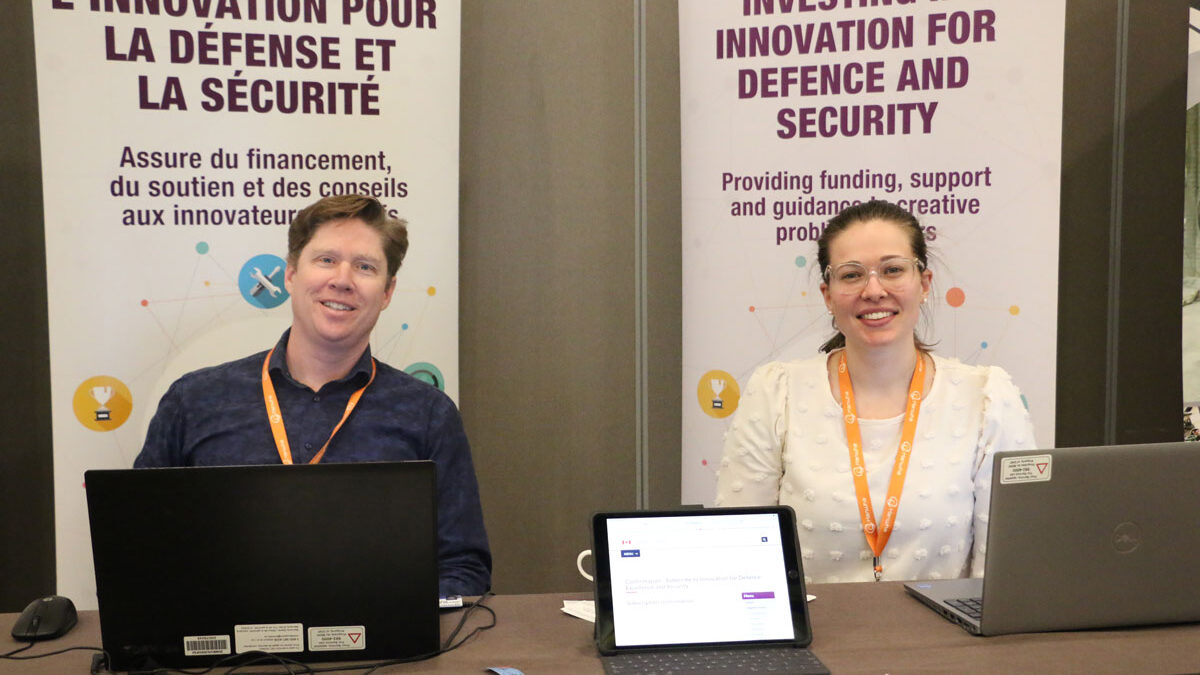On 27 February 2024, Vanguard’s eleventh annual maritime forum, ShipTech Forum 2024, was held in Ottawa, with a theme of “Pushing fleets beyond designed life”. As with ShipTech 2023, the day-long in-person conference was simultaneously streamed for virtual attendees. With a total of 250 attendees – 215 in person and 35 virtual – the audience included representatives from both government and industry, resulting in a dynamic interaction which was only limited by the time available.
The conference was opened with a keynote speech by Commodore Keith Coffen, the Director-General Maritime Equipment Program Management (DGMEPM), with a sobering assessment of the maintenance challenge facing the Royal Canadian Navy (RCN) in maintaining current fleets in operational service until such time as planned and envisioned new construction arrives in the next decade. His speech highlighted the need for a mission focus (the highest priority) on the lives and well-being of sailors by ensuring the ships and submarines were safe, relevant and fit for purpose. He also stressed the need to be honest, while maintaining an open dialogue, teamwork within the entire defence team, and embracing innovation.
He was then followed by a panel discussion on the realities of maintaining aging fleets in the Canadian Coast Guard (CCG) and the RCN, moderated Neil O’Rourke, CCG Director-General Integrated Technical Services. The panel, representing serving and retired senior naval technical officers, as well as industry (Ontario Shipyards) discussed capacity restraints, notably the insatiable demand for skilled people and resource periodization versus risk management. All panellists were most interested in innovative industry solutions to reduce costs.
The morning then proceeded with technical showcase by Automatic Coating Limited on corrosion resistant coatings and their application in the marine industry, specifically warships. Following a networking break, the day’s second panel discussion on innovative maritime solutions was moderated by Dr. John Leggat, a former CEO of Defence Research & Development Canada (DRDC). The panel representing innovative Canadian industry (GasTOPS, JSquared & Hexagon Manufacturing Intelligence Canada) discussed the best ways to leverage technology to conduct condition-based maintenance, particularly for things that were never designed to be repaired. In exploring how technology has changed the landscape, the panel deliberated the use of analytics and digital twins to develop diagnostics (noting that the RCN has been a world leader in digital twins).
The morning ended with another technical showcase by Datifex, on engagement systems to combine engineering and operational data to plan work periods by integrating processes. Following a luncheon break, the afternoon continued with a third panel discussion and five technical showcases on:
• Fibreglass Solutions Inc. on piping and structural refits in a maritime and naval environment to resolve corrosion and weight issues.
• LRDG on language training technology.
• Valcom on understanding what the customer wants.
• OVA on “virtually knowing your ship” by combining training with shipboard scenarios in a mixed reality/real environment.
• Light Structures on fibre optic condition monitoring of the hull by using sensors built into the ship to identify hull stresses and monitor fatigue management.
The afternoon panel discussion was moderated by Mark Sheppard, the DND Director of Naval Platforms Systems, on the use of drones and AI for ship maintenance. The panel representing Deep Trekker Inc, Cellula Robotics and Qii.AI, spoke extensively on the use of drones for cost-effective and timely vessel inspections, both above and below water, to monitor and assess corrosion as well as both acoustic and magnetic signature ranging. The technology is continuing to evolve and while it is fairly intuitive for the drone operators, interpretation of the imaging is different depending on the application.
The final event of the forum was a fireside chat with Sean Willy, CEO Des Nedhe Group and David Acco, Executive VP Acosys Consulting Services, on the challenges and opportunities facing Indigenous participation in the maritime sector. They underscored the strong desire of the Indigenous community to participate as part of a long-term investment with industry by creating relationships, as opposed to simply engaging project to project, thereby adding an Indigenous value proposition.
Summary
ShipTech 2024 was nimbly managed by the MC, retired Rear Admiral Craig Donovan, who neatly summed up a rather jam-packed day that successfully tackled what he termed to be a “wicked problem”: how to extend fleets beyond their designed life. Emphasizing that people are necessarily a very big part of the solution and that, while technology can be leveraged for impressive results, in the end change will be required and change is always hard.
Finally, with specific regards to the Indigenous community, the mantra was “stop thinking about five percent of projects” and “start thinking about nation building”. It was indeed, a very rewarding day.

